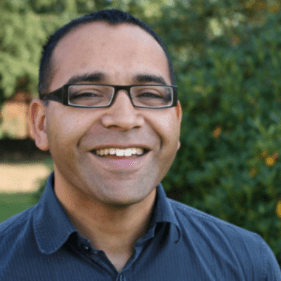I recently read three posts on the blog Cognitive Discopants worth some serious discussion. The first, Why I Have Difficulty Trusting Christians, leads to the title of my post today. This post outlines a journey from acceptance to distrust of evangelical apologists and authorities. The next two posts provide an approach to searching for truth in the face of complex questions. The titles reflect the journey described in the first post: Tips On Not Getting Duped Again Part I and Part II. I recommend these three posts in their entirety – especially for those who are pastors, or who intend to be pastors or Christian leaders.
The first post, Why I Have Difficulty Trusting Christians describes Chris’s experience as his intellectual world expanded to include a wide variety of views and perspectives. As young Christians we think we know who to trust. Our pastors, Christian scholars, the experts and apologists who claim to know. We quote authorities and perhaps consider their tribe in evaluating reliability. We learn what to think, but seldom how to think about questions and problems. Chris encountered problems when as he puts it his “truth filter broke. Irreparably.” This happened first with a careful look at the scientific evidence for the age of the earth and for evolution. It continued on to other areas of study. The search for truth, the search to know who to trust, became decoupled from his faith community. More significantly, it became apparent that, on some issues at least, his faith community could not be trusted.
Have you ever felt deceived? Does it impact your willingness to trust?
What do you look for when deciding who to trust or distrust?
Chris concludes this first post as follows:
It’s been a few years since I began to see my truth filter for what it was. I’ve come out the other side like a Boy Scout after a geomagnetic reversal – my compass now points the opposite direction. In the same way that I once distrusted non-Christians, I now distrust Christians. That’s not to say that I think the average Christian is likely to lie to me. On the contrary, I find that most Christians do prize honesty and usually try to be truthful, at least on a personal level.
The problem is our willingness to lie to ourselves.
…
In assessing trustworthiness, my first question used to be, “Is this person a Christian?” Now I ask, “Is this person trying to defend a belief system to which he has an inflexible commitment?” If the answer is yes, I realize that I need to be cautious. Christians aren’t the only ones who do this. Atheists are more than capable of deluding themselves in the interests of rejecting theism or Christianity (as attested by the prevalence of Jesus mythicism). But no longer does the Christian ethic of honesty provide me with assurance that a Christian source will be credible. While it might dissuade them from knowingly lying to me, their prior theological commitments can easily lead them to delude themselves (and me in the process).
I’m incredibly thankful for those Christian writers, scholars and bloggers who are willing to follow the evidence wherever it leads. When I see that someone has the intellectual honesty to acknowledge even those truths that unsettle his or her faith, that’s when I begin to trust again.
My experience was similar in some ways to that described by Chris, but not entirely. Young earth creationism was an option and probably the most common position in the church I grew up in, but it was not passed off as the only possible answer. One of the youth group leaders taught biology in the local high school and we had some discussions of the options. Still, the questions of science and faith were and are serious issues.
On other issues, such as the nature of scripture, my experience was eerily similar to Chris’s. The largest question became who to trust and where to go for answers – not pat answers to the troubling questions, but honest evaluations of the evidence and its consequence. It isn’t necessary to agree with someone on every issue, or even most issues to have this foundation of trust, but it is necessary to understand and respect the thought processes that lead to the positions taken.
The first question I ask these days when reading or listening to an expert or authority is not “what does this person say?” but “how does this person think, how do they make their argument?” This is true across the board, but it is especially true within the evangelical subculture. I am also thankful for those who will interact with intellectual integrity and deal with ideas and evidence honestly.
We need to look for truth, not protect pet ideas and concepts. Intellectual integrity is not a code for “agree with me.” We only move forward by open discussion and interaction – no one group or person has the corner on all truth, knowledge, and understanding. I have respect for many who disagree with my positions and conclusions – it is the form of the argument and the honesty of the interaction that counts.
How to evaluate authorities – including Christian authorities. Chris goes on in the next two posts, Tips On Not Getting Duped Again Part I and Part II, to put forth some guidelines or tips to avoid being duped by sincere but uninformed or deceptive arguments and reasoning. His list with some comment of my own is given below. (He expands on each in much more detail in the posts linked above.)
1. Don’t reject an opposing view until you’ve read the best available material in support of that view.
In general don’t trust the opponents of a view to do justice to its arguments. Sometimes they will, but too often they will not. Read the proponents and interact with their views at their strongest.
The Christian thinkers I trust, whether I agree or disagree with their conclusions, are those who deal fairly with the opposing view, interacting with it at its strongest in a form that would be recognized by the proponents.
2. Don’t assume that because someone has a PhD, he knows what he’s talking about.
Credentials are important, but they are not enough. There are always credentialed individuals to support any idea. Chris notes: There will be outliers in any field. Don’t let your opinions rest on the views of a single expert, no matter how impressive his resume. This is particularly troublesome in the discussions surrounding science and faith. The credentials of those who challenge evolutionary biology are often only marginally related to the field. Receiving a Ph.D. should ensure a level of knowledge and critical thinking ability within a given field, but we must evaluate how and why people hold any given position. This is far more significant than the possession of appropriate credentials. A Ph.D. alone is no guarantee of wisdom or of careful thought process. (This I say as one who has supervised 11 completed Ph.D’s to date, sat on the governing board of a graduate school, read dozens of dissertations and sat through an equal number of defenses.)
3. Always find out what other experts in the field have to say.
Stray outside of your comfort zone. Know what is being said by others outside of your small circle of friends or authorities. If you stick with only reformed scholars, only evangelical scholars, only creationists, or only those approved by your pastor or perhaps even your professor, you will probably go wrong somewhere. Chris suggests “Try to determine what view is held by scholars in mainstream academic circles, not simply the view within your particular corner of the intellectual world.” This doesn’t mean that the mainstream view is correct, but you have no way to ascertain its value if you don’t understand it.
4. Don’t reject the consensus view of experts unless you truly understand it.
Chris notes: “Scholars and scientists, on the whole, are not idiots. If at any point you find yourself thinking, “These experts are all fools. How can they believe something so obviously wrong?” chances are, you’re the one who doesn’t get it. There are usually very good reasons behind widely-held conclusions.” This is an excellent point – and one that deserves a great deal of consideration. If you can not articulate the reasons why most scholars or most scientists hold a position you are not qualified to reject it. You don’t actually understand the strengths or the weaknesses of the position.
I do not put much trust in an expert, Christian or otherwise, who ridicules the consensus view and argues with humor and putdown rather than data. While the person may be correct, the odds are strongly against it.
5. Don’t justify your theory’s lack of acceptance by appealing to a conspiracy.
Nothing is more annoying in the science and faith discussion than this appeal to conspiracy, whether it is a conspiracy to cover up the truth or a conspiracy to avoid certain arguments for fear of where they may lead. In the conspiracy view Christians in agreement with mainstream science are cast as hoodwinked compromisers, while non Christian scientists are cast as intentional evangelists of materialism hiding the truth to win their point. Neither is true. Yes, politics and peer pressure can be at play on occasion, perhaps many occasions, from all sides. But grand conspiracy? – no, not really; the social forces and processes are more subtle and convoluted, both within the church and within the scientific community.
“Be skeptical about people who offer these sorts of justifications for their theory’s unpopularity.” Excellent advice.
The original post asked for more suggestions of tips for thinking through questions and conflicts and for evaluating the reliability of authorities.
Do you have any suggestions to add?
What should pastors and other Christian leaders do to build, earn, or retain trust?
If you wish to contact me directly you may do so at rjs4mail[at]att.net
If interested you can subscribe to a full text feed of my posts at Musings on Science and Theology.











